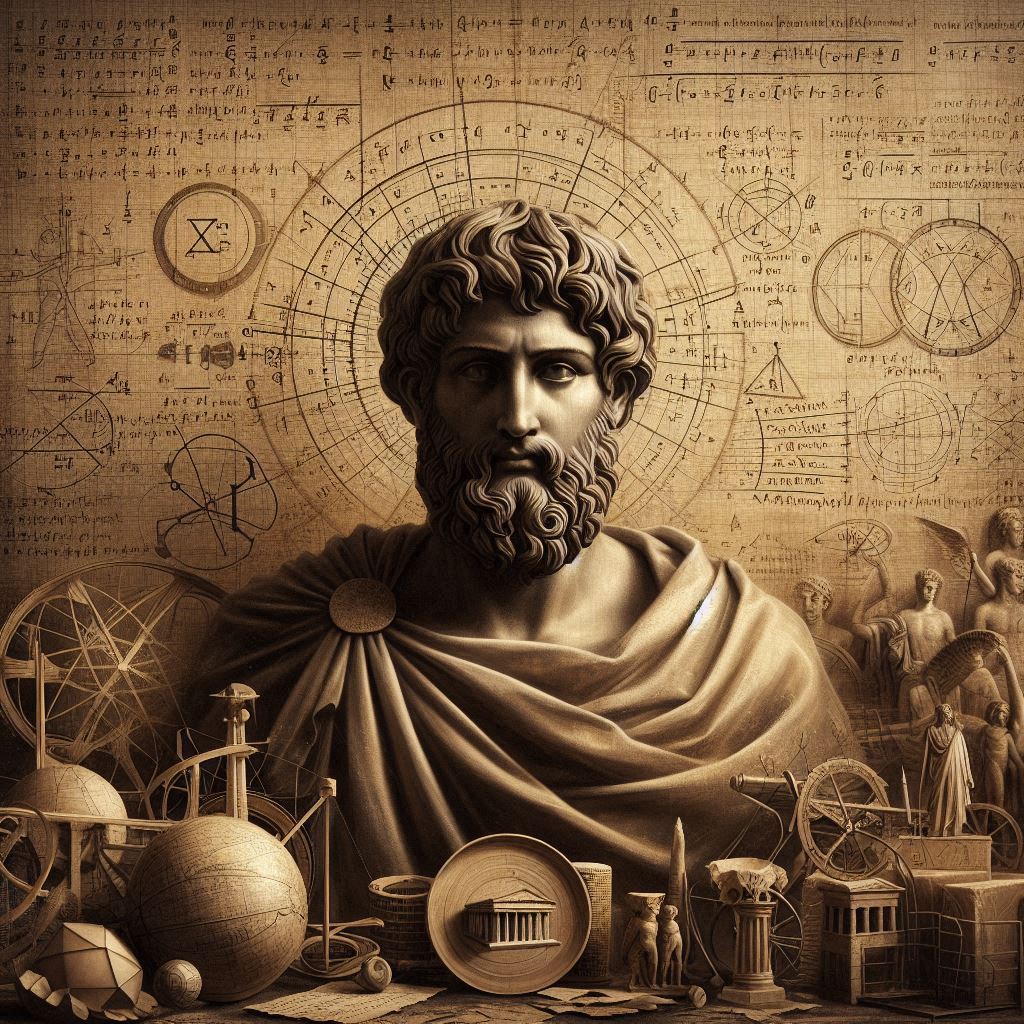Table of Contents
- Introduction
- Origin and Early Life
- Inventions and Innovations
- Mathematical Contributions
- The Eureka Moment
- Legacy and Conclusion
Introduction
Archimedes is one of history's most brilliant minds, whose contributions laid the foundation for modern science, engineering, and mathematics. A figure from ancient Greece, he is remembered not just for his inventions but also for his profound insights into mathematics. This post will explore the life, work, and legacy of this unparalleled genius.
Origin and Early Life

Archimedes was born in 287 BCE in the city of Syracuse, located on the island of Sicily, which was then a part of the Greek world. The son of an astronomer named Phidias, Archimedes was exposed to the wonders of science and mathematics from a young age. He studied in Alexandria, Egypt, which was a center of learning at the time, and there he honed his skills and knowledge, setting the stage for his later achievements.
Inventions and Innovations
Archimedes is perhaps best known for his ingenious inventions, many of which had significant impacts both in his time and in the centuries that followed. Here are some of his most notable inventions:
- Archimedean Screw: Designed to lift water from lower to higher elevations. This device consists of a screw inside a hollow tube. As the screw is turned, water is lifted through the tube, making it useful for irrigation and draining water from mines.
- Compound Pulley: A system developed to lift heavy objects with less force by distributing the weight across multiple pulleys, reducing the force needed.
- Levers: Archimedes formalized the principles of levers, demonstrating how a small force applied over a long distance could move a large load. His famous quote, "Give me a place to stand, and I will move the Earth," reflects this understanding.

- Claw of Archimedes (Iron Hand): A defense mechanism designed to protect Syracuse from naval attacks. It was a giant crane-like arm equipped with a grappling hook, used to lift and capsize attacking ships.

- Archimedes' Heat Ray: According to legend, this device used a series of mirrors to focus sunlight onto enemy ships, causing them to catch fire. Though its existence is debated, it remains one of the most famous stories associated with him.
- Odometer: An early version of the odometer, which counted the rotations of a wheel to calculate distance traveled, useful for military and civil engineering projects.
- Hydraulic Screw (Water Screw): Similar to the Archimedean Screw, this device was used for irrigation and moving water in regions where elevation changes posed challenges.
- Planetarium: Archimedes is believed to have constructed a model that could simulate the motions of the Sun, Moon, and planets, providing a visual representation of celestial mechanics.
- Burning Mirrors: A theoretical device for focusing sunlight to start fires, possibly conflated with the heat ray, involved using large, curved mirrors to concentrate sunlight.
- Archimedes' Principle: A foundational discovery in fluid mechanics regarding buoyancy (the upward force exerted by a fluid on a submerged object), revolutionizing understanding in physics and engineering.
Mathematical Contributions
Archimedes' work in mathematics was groundbreaking. He made significant advances in geometry, calculus, and the understanding of the properties of shapes and volumes. Some of his key contributions include:
- The Method of Exhaustion: A precursor to integral calculus, this technique allowed Archimedes to calculate the area under curves and the volume of shapes like spheres and cylinders.
- The Archimedean Principle: He derived the formula for the volume of a sphere and the relationship between a sphere's volume and its circumscribing cylinder.
- The Value of Pi: Archimedes provided one of the earliest and most accurate estimates of the value of pi (π), which is fundamental to many areas of mathematics.
The Eureka Moment

One of the most famous stories associated with Archimedes is his "Eureka" moment. According to legend, Archimedes was tasked by King Hiero II to determine whether a crown was made of pure gold or if it had been adulterated with silver. While taking a bath, Archimedes noticed the water level rising as he submerged, leading him to realize that the volume of water displaced could be used to measure the crown's volume and thus its density. Excited by this discovery, he is said to have run through the streets of Syracuse naked, shouting "Eureka!" (I have found it!).
This moment is emblematic of the process of scientific discovery—observation, insight, and the joy of understanding.
Legacy and Conclusion
Archimedes' contributions to science, mathematics, and engineering continue to resonate through the centuries. His works were studied by later scholars in the Islamic world and Renaissance Europe, influencing figures like Leonardo da Vinci and Galileo Galilei. His inventions and mathematical theories laid the groundwork for future developments in physics and engineering, making him one of the most influential figures in the history of science.
In conclusion, Archimedes was not just a mathematician or inventor; he was a pioneer whose work transcended his time. His legacy is a testament to the power of human ingenuity and the pursuit of knowledge.
Interested in Greek mythology? Click here

